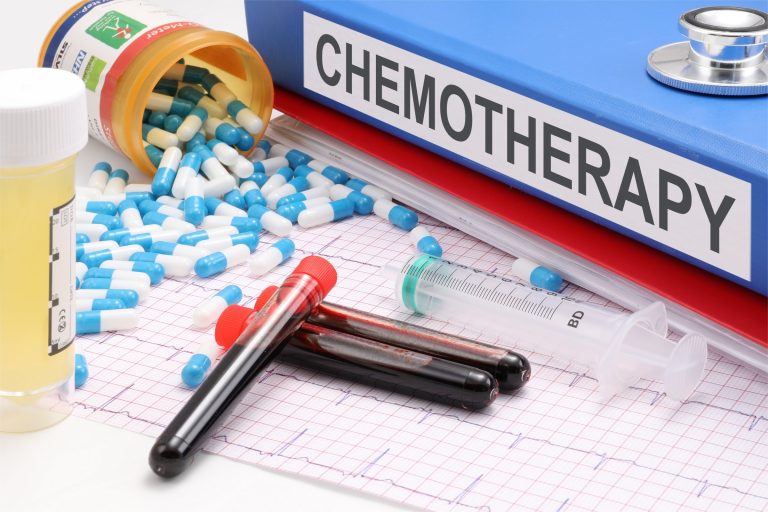Intro:
Chemotherapy is a tool used to treat cancer. Despite its healing capabilities, chemotherapy is also one of the most taxing things a body can go through, even on a journey to recovery.
As the name suggests, the process requires therapeutic treatment sessions with different chemicals to kill the cancer cells, preventing them from further spreading.
Chemotherapy Side Effects
The chemotherapy treatment process causes many negative side effects for patients. The actual effects will depend on each individual. However, there are a few common ones that often plague those receiving treatment. Here are a few to note:
- Hair loss
- Appetite loss or gain
- Nausea
- Vomiting
- Excessive bruising or bleeding
- Fatigue
- Anemia
Chemotherapy Coping Tools
While it might not be possible to completely avoid negative health effects, there are potential coping mechanisms out there.
1. Take It Easy On Yourself
One of the most important things you can do for yourself when navigating chemotherapy is to have grace with yourself. Cancer and its treatment methods can be extremely taxing on a person.
Now is not the time to sign yourself up for all of the work meetings or get extra involved with your child’s school life. It’s important to say “no” when you’re not feeling up for something and using some extra time to rest and relax.
2. Find Your Support System
One of the most important aspects of the treatment and recovery process is to form a quality support system. This can come in many different forms, including relying on friends and family more or joining support groups designed to help you cope.
If you’re not comfortable with speaking in a group setting or with loved ones candidly, connecting with a therapist can be a great tool. Finding someone you love can mean someone to guide you through chemotherapy, its effects, and even afterward.
3. Avoid Illnesses
When receiving chemotherapy, the process can often lower your white blood cells which makes you more susceptible to illness. Without the good-for-you cells fighting off germs, your chances of developing an infection become increased.
You don’t necessarily need to avoid the public for the whole duration of your treatment process, but be sure to sanitize extra and avoid being in close contact with anyone ill. If your doctor advises you to stay away from public areas after treatment for a set amount of days, be sure to listen to them. Also, contact your doctor immediately if you develop a fever above 101 degrees.
4. Stay Hydrated and Eat Well
Two ways to help keep your health up and your body prepared for the uphill battle that is cancer management, monitor what goes into your body. Foods full of nutrients and making sure to drink enough fluids means your body is overall healthier and better equipped to face treatment.
Do what you can to alleviate the burden by automating the food-making process, such as bulk-making meals and freezing them, so that you do not overexert yourself.
5. Natural Supplements
Doctor prescribed coping methods can only help so much. You may find it worthwhile to embellish your treatment plan with natural alternatives, such as cannabis products.
Cannabis has been shown to help cancer patients find relief over time, even to the point of cancer being one of the few medical approvals for state cannabis laws.
6. Do What You Love
Navigating chemotherapy can take a huge toll on a person, even with the best tools and treatment around. Veriheal also provides you the education and awareness. It’s important to continue making time for yourself outside of the chemotherapy treatment sessions.
If you have forgotten a hobby or a project you’ve always wanted to finish – even something you’ve never considered doing before now, allow yourself the space to engage in it without self-criticism. The time used to yourself will provide a much-needed level of nurturing that can help you mentally prepare for treatment.
Conclusion
Chemotherapy, though very difficult to navigate, is an important, life-saving tool used to help treat cancer. Thankfully, there are few options out there to help patients manage their treatment process, but what works best for each person will be unique. Finding the correct option for you can make all of the difference!

